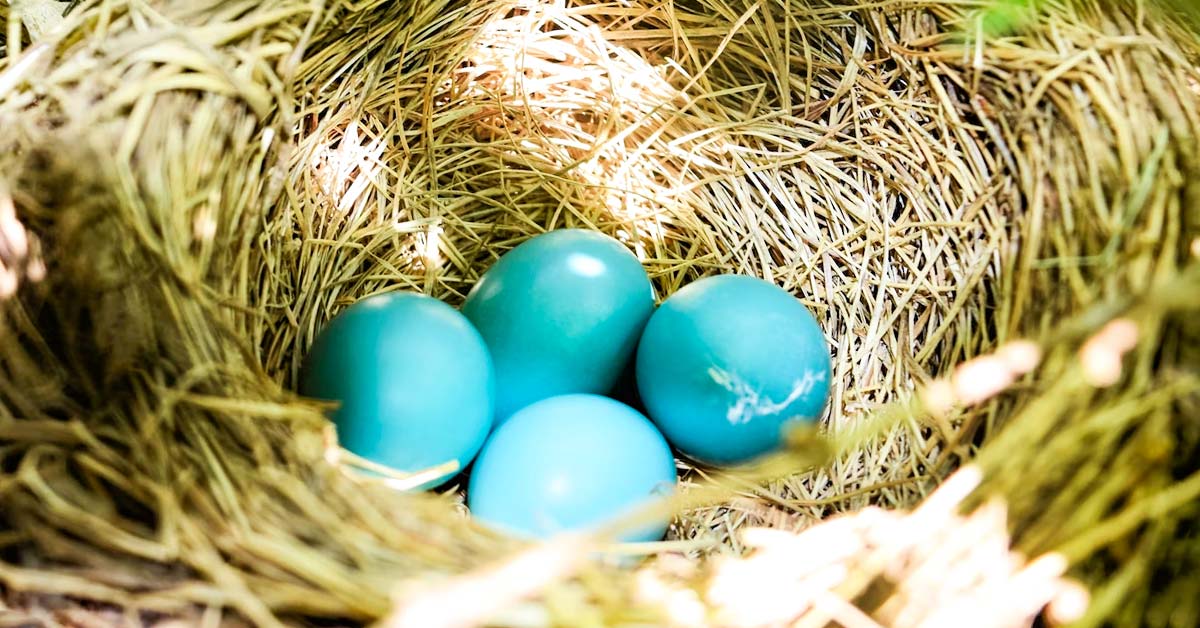How long does it take for bird eggs to hatch? Are you curious to know?
Did you find an abandoned nest with eggs in it and are worried about them hatching by themselves?
Or do you have a house bird that recently blessed you with ready-to-hatch baby bird eggs? And you want to be ready to assist with hatching?
Here are everything you need to know about the time it takes for bird eggs to hatch and answers to other cool bird egg-hatching FAQs.
How Long Does it Take for Bird Eggs to Hatch?
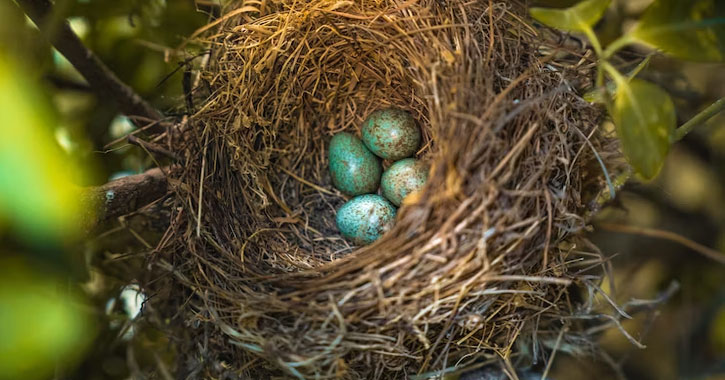
The incubation time needed for birds’ eggs to hatch successfully varies from species to species. The average hatching time is within 10 to 30 days.
The hatching process is just one of the many steps involved in a bird’s nesting cycle. Regardless of species or size, the nesting cycle includes the following:
Finding a breeding spot, mating and nest building
Birds begin breeding activities either on the same spot as their past breeding place, or find new ones with a food source and away from predators.
Once the perfect spot is found and the females choose their mates (based on their song, strength, or appearance), birds then build their nests from various natural materials like grass, mud, leaves, and more.
Copulation and Egg laying
Copulation involves the changes between the male and female birds’ reproductive organs. In the first stages of embryonic growth, eggshells develop. Ovulation usually takes around 24 hours, which is why birds often product 1 egg per day.
Of course, the number of eggs and gap between each eggs laid would vary between bird species. For example, tropical birds only lay a pair or trio of eggs, while waterfowl can lay over a dozen eggs in a single nesting season.
Incubation and hatching
This period is the time required for eggs to be kept warm under the right temperature. It can be done by the mother bird, father bird, or artificially (by a light source or other specialty machine).
Some birds begin incubation immediately after the first egg is laid, while others only begin after all eggs are laid.
Incubation period lasts from 9 to 80 days. It is followed immediately by the hatching (often started by a tiny crack on the egg shell), which ultimately widens big enough for the chick to be able to exit the shell on their own.
Bird Egg Hatching Timeline Difference Between Bird Species
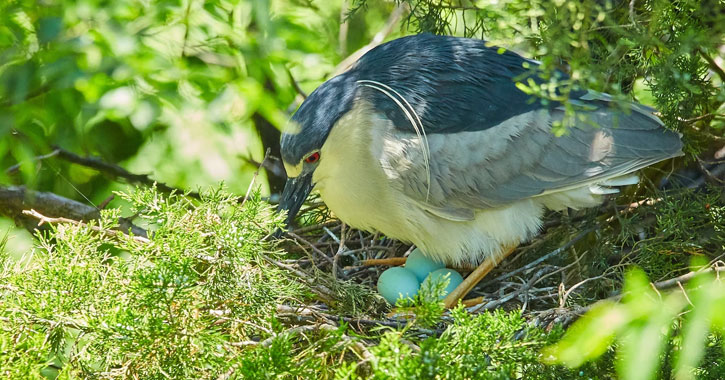
About 700 bird species produce the next generation of their avian species during the breeding season.
The incubation, nesting and hatching process is largely similar between birds, but the time it takes for the eggs to hatch vary largely between bird species.
Which bird species hatch the quickest?
The silvereye or white-eye birds hatch just after 9 or 10 days. They’re followed by Northern cardinals, whose eggs are incubated for only 14 days before hatching.
Which bird species hatch the longest?
The incubation period of the Northern Royal Albatross eggs is around 11 weeks or 79 days. It is the longest hatching process of any bird.
Here are other types of birds and their respective hatching timelines:
- Parrots – 18 to 28 days
- Finch birds – 13 to 14 days
- Northern Cardinals – 13 to 15 days
- Baltimore Oriole – 11 to 14 days
- American Goldfinches – 12 to 14 days
- Carolina Wrens – 12 to 16 days
- Sparrows – 10 to 17 days
- Robins – 14 days
- Eastern Bluebirds – 17 to 21 days
- Pileated woodpeckers – Around 18 days
- Barn owls – 28 to 33 days
- Canada Geese – Up to 28 days
- Golden Eagles – 40 60 45 days
- California Condor – 52 to 60 days
In general, the eggs of songbirds and other small-sized birds hatch a shorter time (about 10 to 14 days) than heavier bird species like owls and water birds, which are known to hatch around 20 days or longer.
Other Bird Egg Hatching FAQS
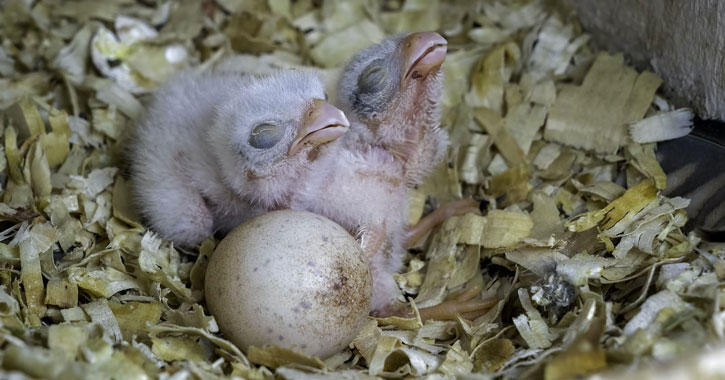
Do birds sit on their eggs all the time?
Some birds sit on their eggs for several hours (or days) at a time. Other birds just cover their birds for half-an-hour daily and leave the eggs by themselves the rest of the day.
How long do birds sit on their eggs a day?
Birds need to sit on the eggs to keep them warm and help the chicks develop inside. But the amount of time they need to do this on a daily basis also depends on the size of the bird and its eggs.
For example, small birds like wrens would only require 10 to 20 minutes of “sitting time” a day. In contrast, the albatross would have to sit on its eggs for weeks at a time.
Why do some birds abandon their nests with eggs?
Don’t panic if you see a nest of bird eggs without a mom (or dad). In most cases, the parents didn’t abandon their “kids.” The adult birds will come back when the eggs are viable for incubation.
In fact, when the parent birds leave the nest, it is usually because they’re preparing for the eventual “arrival” of the young ones. They might use this away-time to stock food, add stability to the nests, and even keep enemies away.
How long can bird eggs survive without heat?
Bird eggs require a consistent temperature of 16 to 17 Celsius for survival, but they can survive up to 7 days without warmth.
Can bird eggs hatch without the mother?
Birds can hatch even without the mother present because the egg already has everything that the chick inside needs to develop.
In fact, many bird species get the father birds to sit on the eggs throughout the incubation period until the last egg has been laid.
Do birds hatch in winter?
You’ll be surprised that many birds actually lay eggs in the winter. They don’t have to be winter birds, per se, but birds like owls, eagles and hawks that raise their young way longer than other bird species begin nesting early (usually in winter).
Some birds, such as pigeons and doves, lay eggs year-round.
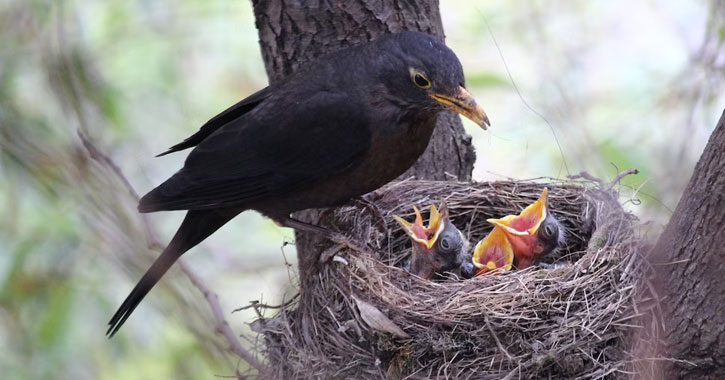
Takeaways: how long does it take for bird eggs to hatch?
You don’t have to be a pro birder to think that a bird’s nesting cycle is an exceptionally interesting thing to witness.
If you’ve ever find yourself with a backyard bird with a nest full of eggs, learning about the average time it takes for bird eggs to hatch, the intricacies of the incubation period, and how birds feed their young is helpful. Becoming informed avoids unnecessary panic when you think the mother bird has abandoned its nest, or if you think the eggs are taking too long to hatch.
